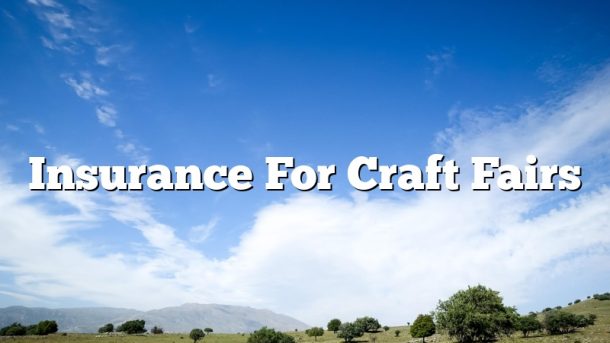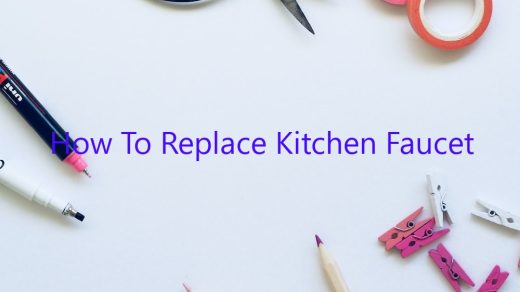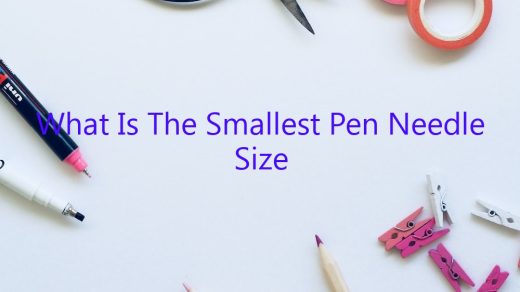If you’re planning on hosting a craft fair, it’s important to make sure you have the proper insurance in place. Craft fairs can be a lot of fun, but they also involve a lot of risk. If a vendor slips and falls, or if a customer has a allergic reaction to a product, you could be held liable.
That’s why it’s important to have insurance for your craft fair. Liability insurance will protect you in the event of an accident or injury. And if something does happen, you’ll be glad you have insurance to help cover the costs.
In addition to liability insurance, you may also want to consider insurance for your products. If a vendor’s product causes injury, they may sue you for damages. Product insurance will protect you in the event of a lawsuit.
It’s important to note that not all insurance policies are the same. Make sure you talk to your insurance agent to find out exactly what is covered under your policy.
hosting a craft fair can be a lot of fun, but it’s important to make sure you have the proper insurance in place. Liability insurance will protect you in the event of an accident or injury, while product insurance will protect you in the event of a lawsuit. Make sure you talk to your insurance agent to find out exactly what is covered under your policy.
Contents
What type of insurance do crafters need?
Crafting can be a fun and profitable hobby, but it’s important to protect yourself and your business with the right type of insurance. Whether you’re a crafter who sells your items online, at craft fairs, or in local stores, there are specific types of insurance you’ll need to safeguard your business.
General liability insurance is the most important type of insurance for crafters. This insurance protects you from any legal liabilities that may arise from your business. For example, if a customer is injured while visiting your booth at a craft fair, general liability insurance would help protect you from any legal damages that may be awarded.
If you sell items online, you’ll also need to have product liability insurance. This insurance protects you from any legal liabilities that may arise from the sale of defective products. For example, if a customer buys a handmade necklace from you and the necklace breaks and causes injury, product liability insurance would help protect you from any legal damages that may be awarded.
In addition to general liability and product liability insurance, crafters should also consider liability insurance for their home-based businesses. This insurance protects you in the event that someone is injured on your property. For example, if a customer trips and falls while visiting your home-based studio, liability insurance would help protect you from any legal damages that may be awarded.
It’s also important to have insurance that covers your business property. If you have a home-based studio, your home insurance policy will likely not cover your business property. This means that you’ll need to have a separate policy that covers your crafting supplies and equipment.
Finally, if you’re a crafter who travels to craft fairs and other events, you’ll need to have event insurance. This insurance protects you from any legal liabilities that may arise from hosting or attending events. For example, if a customer trips and falls at your booth at a craft fair, event insurance would help protect you from any legal damages that may be awarded.
As a crafter, it’s important to protect yourself and your business with the right type of insurance. General liability insurance, product liability insurance, liability insurance for home-based businesses, and event insurance are all important policies for crafters to consider.
Do I need insurance to sell handmade crafts UK?
Do I need insurance to sell handmade crafts in the United Kingdom?
This is a question that many people who are looking to start selling their handmade crafts may have. The answer is, unfortunately, it depends. There are a few things that you will need to consider when it comes to selling your crafts.
The first thing to think about is whether or not you will be selling your crafts online or in person. If you are selling online, you will need to have an insurance policy that covers you for any liability claims that may be made against you. This is because you will be acting as a business when you are selling online, and as such, you will be responsible for any damages or injuries that may be caused by your products.
If you are selling your crafts in person, you will not need to have liability insurance. However, you may still want to consider purchasing an insurance policy that covers your products in case they are damaged or lost. This will help to protect you from any legal costs or damages that may be awarded to your customers in the event of an incident.
When it comes to choosing an insurance policy, it is important to make sure that you are covered for both public and product liability. This will ensure that you are protected in the event of any accidents or injuries that may occur.
Overall, the answer to the question of whether or not you need insurance to sell handmade crafts in the United Kingdom depends on how you plan to sell your products. If you are selling online, you will need to have liability insurance in place. If you are selling in person, you may still want to consider purchasing insurance, but it is not mandatory.
What kind of insurance does an artist need?
An artist needs several types of insurance, depending on what kind of work they do.
For example, if an artist sells their work, they need product liability insurance. If they exhibit their work in a gallery, they need art insurance. And if they teach classes, they need liability insurance.
Product liability insurance protects the artist from any legal action that might be taken against them if a customer is injured by one of their products. This type of insurance is important for any business that produces a physical product.
Art insurance protects the artist’s work from damage, theft, or loss. It can also cover the cost of restoration or replacement in the event of an incident.
Liability insurance protects the artist from any legal action that might be taken against them for injuries that occur in their class. This type of insurance is important for anyone who teaches classes, whether they are an artist or not.
An artist should speak to an insurance agent to find out what type of insurance they need and what the best options are for them.
Do art galleries need insurance?
Do art galleries need insurance?
The simple answer to this question is yes, art galleries do need insurance. However, the specific type of insurance that is needed depends on the gallery’s size and location.
Smaller art galleries typically need general liability insurance. This type of insurance protects the gallery from any lawsuits that may arise from accidents or injuries that occur on the premises.
Larger art galleries may need more specialized insurance. For example, they may need insurance that covers the art that is displayed in the gallery. This type of insurance can help protect the gallery from any damages that may occur to the art.
It is also important for art galleries to have insurance that covers theft. This can help protect the gallery from any losses that may occur if any of the art is stolen.
Overall, art galleries do need insurance. The type of insurance that is needed depends on the specific gallery’s needs.
Do I need insurance to sell handmade goods?
When you’re starting a small business, insurance is likely one of the last things on your mind. However, it’s important to consider what types of insurance you may need to protect yourself, your employees, and your business.
One type of insurance you may need to consider is liability insurance. This type of insurance can help protect you if someone is injured as a result of your business. For example, if you are selling handmade goods and someone is injured by a product you sell, liability insurance can help protect you from being sued.
It’s important to note that liability insurance may not be necessary for all small businesses. However, it is a good idea to speak with an insurance agent to determine if it is right for you.
In addition to liability insurance, you may also want to consider insurance that covers your business property. This type of insurance can help protect your business if something happens to your building or property. For example, if your building catches on fire, property insurance can help you pay for the damages.
Again, it’s important to speak with an insurance agent to determine if property insurance is right for you. There are a number of different types of insurance available, so it’s important to find one that fits your business needs.
When it comes to selling handmade goods, you may also want to consider liability insurance. This type of insurance can help protect you if someone is injured by a product you sell. It’s important to note that liability insurance may not be necessary for all small businesses. However, it is a good idea to speak with an insurance agent to determine if it is right for you.
What is a product liability insurance?
A product liability insurance policy covers companies from financial damages that may arise as a result of a defective product. This type of insurance is important for companies that produce, sell, or distribute products to consumers.
Product liability insurance can protect a company in the event that a consumer is injured by a product, or if the product causes property damage. The policy can also provide coverage in the event of a product recall.
There are a number of things to consider when purchasing a product liability insurance policy. It is important to know the amount of coverage that is needed, and to choose a policy that provides adequate protection.
It is also important to understand the exclusions and limitations of a policy. For example, some policies may not cover products that are used for commercial purposes.
Company owners should work with an insurance agent to find the right product liability insurance policy for their business.
What insurance do I need to sell homemade products?
If you are selling homemade products, you may need to purchase specific insurance coverage. There are many types of insurance policies available, so it is important to understand the risks associated with your business and what type of policy will best protect you.
One type of insurance that is commonly purchased by small business owners is product liability insurance. This policy protects you from claims that products you sell are defective or caused harm to a customer. It is important to note that not all products are covered by this policy, so be sure to read the terms and conditions carefully.
Another type of insurance that may be appropriate for sellers of homemade products is general liability insurance. This policy protects you from claims that arise from accidents or injuries that occur on your property. For example, if someone slips and falls on your property, general liability insurance would help to cover the associated costs.
It is important to consult with an insurance agent to determine which policies are best for your business. Be sure to discuss the specific risks associated with your products and your business location. By doing so, you can be sure that you are fully protected in the event of an unexpected incident.




